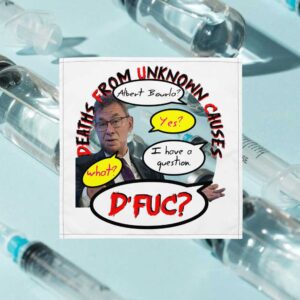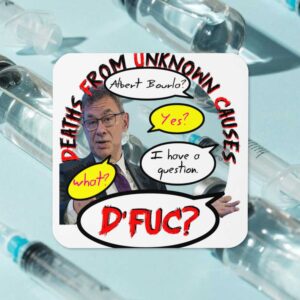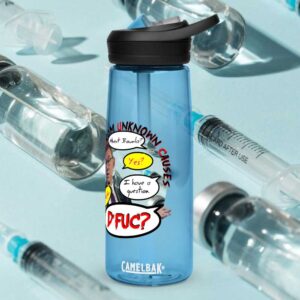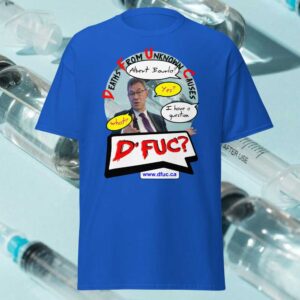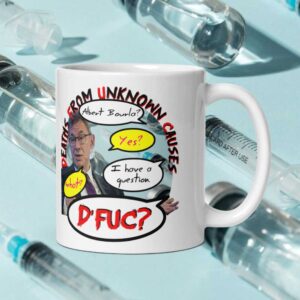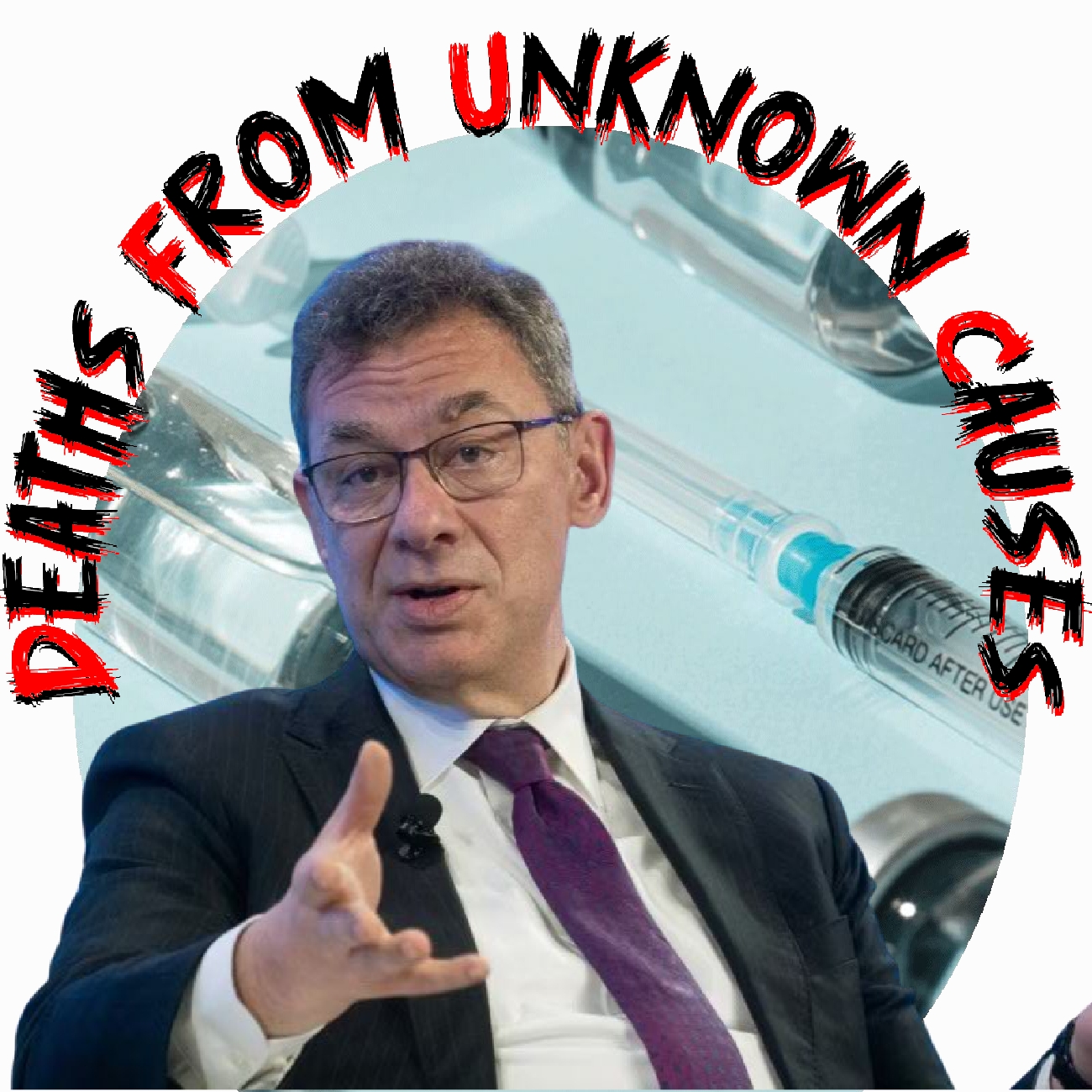
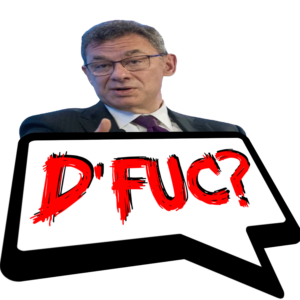
In the ⛹ Old Normal ⛪ (2000-2014)
A typical 63-yr-old man like Albert, living in New York, United States, died at a yearly rate of 121 per 100K, with 1,008 deaths each year from Unknown Causes.
In the ♿ New Normal ⛺ (2015-2022)
Under conditions devised, promoted, and ultimately imposed by men like Albert, 118 per 100K men 60-64 are dying, with 1,231 Deaths per year From Unknown Causes
– down 2.4% and down 9.2% respectively. –
Question # 1:
Who is Albert Bourla?
Albert Bourla is the Chairman and Chief Executive Officer (CEO) of Pfizer Inc., a leading pharmaceutical company. He has held this position since January 2020. Under his leadership, Pfizer has been actively involved in the development of various medications and vaccines, including the Pfizer-BioNTech COVID-19 vaccine, which played a crucial role in the global response to the COVID-19 pandemic. Bourla has an extensive background in the pharmaceutical industry and has been with Pfizer for several decades, holding various positions of increasing responsibility before becoming CEO.
Question # 2:
List 5 actions taken by Albert Bourla in response to the WHO declaring COVID-19 a pandemic. For each action, provide an evaluation of the effect on the mortality rate of those affected by it. Support each evaluation by providing a link to a relevant online source which is not controlled or supported, financially or otherwise, by Albert Bourla.
Albert Bourla”s Actions in Response to COVID-19 Pandemic
Actions Taken by Albert Bourla in Response to COVID-19 Pandemic
- Action 1: Supporting Vaccine Development
Albert Bourla led Pfizer in developing a COVID-19 vaccine in record time.
Evaluation: This action has significantly helped in reducing the mortality rate by providing an effective vaccine to prevent the spread of COVID-19.
Source: World Health Organization
- Action 2: Scaling Up Vaccine Productio
Albert Bourla worked towards increasing the production capacity of COVID-19 vaccines to meet global demand.
Evaluation: This action has positively impacted the mortality rate by ensuring more people have access to vaccines, thereby reducing the severity and spread of the virus.
Source: Pfizer
- Action 3: Collaborating with Governments and Health Institutions
Albert Bourla worked closely with governments and health institutions worldwide to mitigate the impact of COVID-19 and support vaccination efforts.
Evaluation: This action has helped in coordinating resources and implementing effective measures to control the mortality rate and protect public health.
Source: Sky News
- Action 4: Donating Vaccine Doses to Low-Income Countries
Albert Bourla initiated the donation of COVID-19 vaccine doses to low-income countries to ensure equitable access to vaccination.
Evaluation: This action has played a role in reducing the mortality rate globally by assisting in vaccinating populations that may otherwise have limited access to vaccines.
Source: CBS News
- Action 5: Investing in Research and Development
Albert Bourla prioritized investment in research and development to continuously improve COVID-19 vaccine efficacy and develop potential booster shots.
Evaluation: This action has the potential to further reduce mortality rates by ensuring ongoing advancements in vaccine development and response to new variants of the virus.
Source: CNBC
Question # 3:
Given the “New Normal” vs. “Old Normal” mortality data cited above, provide a re-evaluation of the actions taken by Albert Bourla in his response to the WHO declaring COVID-19 a pandemic. For each action, explain how it may have contributed to these mortality rates.
Re-evaluation of Albert Bourla’s Actions During COVID-19 Pandemic
Re-evaluation of Albert Bourla’s Actions During COVID-19 Pandemic
- Acceleration of Vaccine Development and Distribution
Evaluation: While the rapid development of vaccines aimed to reduce COVID-19 mortality, concerns about long-term safety data and vaccine hesitancy may have indirectly influenced mortality rates.
Source: The BMJ
- Implementation of Safety Measures in Pfizer Facilities
Evaluation: Safety measures were essential for reducing transmission among workers, but strict lockdowns and economic impacts could have contributed to increased mortality from other causes, such as mental health issues or delayed medical care.
Source: The Lancet
- Collaboration with Global Health Organizations for Vaccine Access
Evaluation: While collaboration aimed to improve global health outcomes, disparities in vaccine distribution may have led to unequal health impacts across different regions and could have influenced overall mortality rates.
Source: Nature
- Research Funding and Support for Therapeutic Treatments
Evaluation: Investment in treatments is critical for managing COVID-19; however, the focus on COVID-19 may have diverted resources from other health conditions, potentially affecting mortality rates from those conditions.
Source: Health Affairs
- Transparency and Open Communication about Vaccine Safety
Evaluation: Transparency is key to public trust, but misinformation and mixed messages may have led to confusion and vaccine hesitancy, potentially impacting mortality rates due to lower vaccination uptake.
Source: Vaccine
Please note that the above document is a hypothetical re-evaluation based on the provided statistics and does not necessarily reflect the actual impact of the actions taken by Albert Bourla or Pfizer. The sources linked are meant to provide context and are not directly related to the statistics provided in the prompt. It is important to critically assess a wide range of data and sources when evaluating the impact of public health decisions.
Question # 4:
“Build Back Better” is a UN slogan promoting SDGs. Describe how Albert Bourla has promoted these ideals in his role as Chief Executive Officer at Pfizer Inc.. Provide links to examples of Albert Bourla’s acting out his commitment to sustainable development over the course of his career.
Pfizer Inc.
Albert Bourla’s Commitment to Sustainable Development
As the Chief Executive Officer of Pfizer Inc., Albert Bourla has been a proponent of sustainable development and has actively worked towards promoting the ideals encapsulated by the “Build Back Better” slogan and the United Nations Sustainable Development Goals (SDGs).
Advancing Global Health
Under Albert Bourla’s leadership, Pfizer has made significant strides in advancing global health, which is in line with SDG 3: Good Health and Well-being. One of the most notable contributions has been the development and distribution of the COVID-19 vaccine, which has been made available to countries around the world, including low- and middle-income countries.
More information on Pfizer’s global health initiatives can be found here.
Reducing Carbon Footprint
Albert Bourla has also emphasized the importance of environmental sustainability, aligning with SDG 13: Climate Action. Pfizer has committed to reducing its carbon footprint and has set ambitious targets to decrease greenhouse gas emissions.
Details on Pfizer’s environmental commitments are available here.
Supporting Education and Workforce Development
Education and workforce development are crucial for sustainable development, and Pfizer, under Albert Bourla’s guidance, has supported various initiatives that contribute to SDG 4: Quality Education and SDG 8: Decent Work and Economic Growth. These initiatives include partnerships with educational institutions and programs aimed at enhancing skills and employment opportunities in the biopharmaceutical industry.
Learn more about Pfizer’s commitment to education and workforce development here.
Partnerships for the Goals
Recognizing the power of collaboration, Albert Bourla has fostered partnerships with other organizations to achieve the SDGs. Pfizer’s collaboration with various stakeholders, including governments, NGOs, and the private sector, exemplifies SDG 17: Partnerships for the Goals.
Read about Pfizer’s partnerships here.
Albert Bourla’s actions and leadership at Pfizer Inc. demonstrate a strong commitment to sustainable development and the well-being of communities around the globe.

